America's Subverted Democracy: The Deep State That Overrides Its Presidents
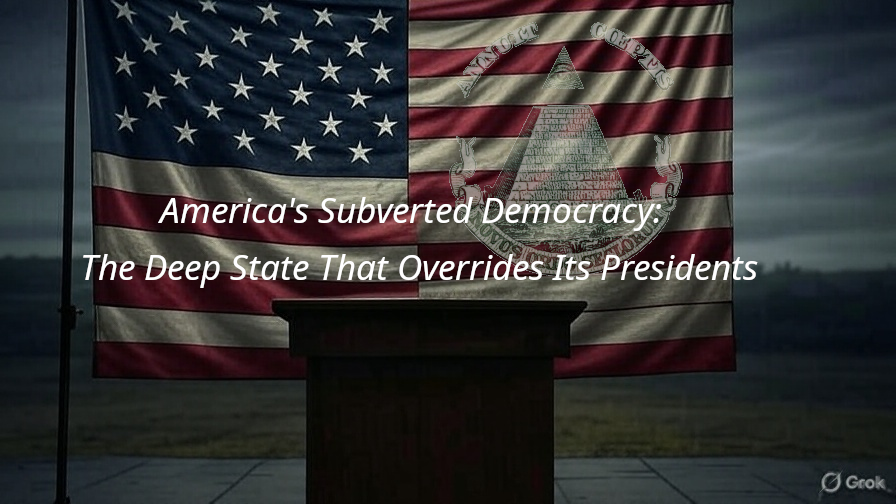
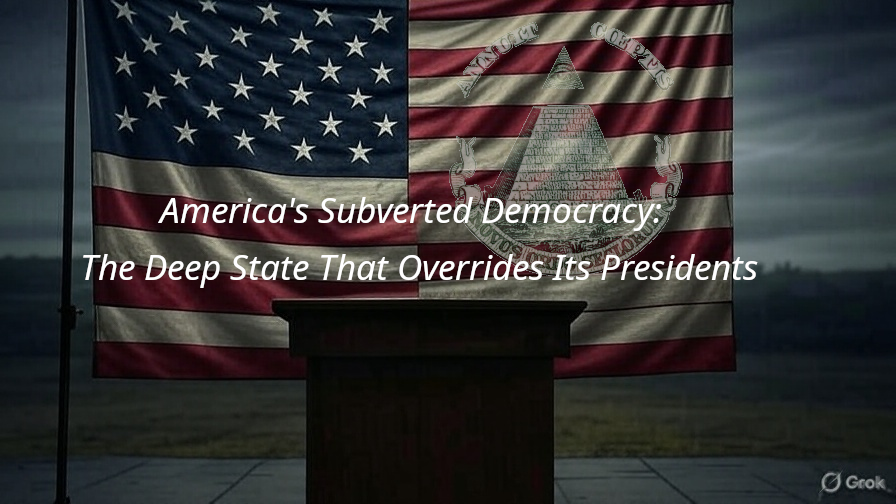
Introduction
The United States is portrayed on the world stage as the "cradle of democracy," but as Columbia University professor Jeffrey Sachs states in the video, this democracy is merely a "formal structure," described as "democratic in form but not in substance" (In the video, Sachs states: "Clearly, our foreign policy is not determined democratically. Much of what the United States does is never explained, justified, or voted on by the American people"). This article examines the structure of the U.S. deep state through historical and contemporary examples, revealing that even presidents lack full control. Drawing on Sachs's observations from the video about Donald Trump's Ukraine policy, NATO's eastward expansion, and Trump's approach to it, we discuss how the deep state shapes U.S. politics. We also incorporate Vladimir Putin's comments on U.S. presidents' lack of real authority. Ultimately, we emphasize that the deep state's policies, executed through proxy states like Ukraine and Israel, occur without the knowledge or approval of even U.S. presidents, and we argue that restoring world peace requires the American people to reclaim true democracy by challenging the deep state.
The Structure of the Deep State and Its Historical Roots
The deep state in the U.S. refers to the invisible networks of official institutions (CIA, Pentagon, and the military-industrial complex) that shape power dynamics. In the video, Sachs states: "There is nothing democratic about American foreign policy. Especially when we go to war. We go to war relentlessly, telling outright lies to the American people without telling them anything" (this quote is from the video's critique of the deep state). This structure overrides presidents' constitutional authority, prioritizing its own interests over national ones. This subverts U.S. democracy—turning it into a system where leaders elected by the people are, in practice, directed by hidden elites.
Historically, the deep state's roots trace back to the Cold War era. In the video, Sachs explains policies against the Soviet Union from 1945 onward, noting that the U.S. viewed even its allies as threats: "Since 1945, we've hated the Soviet Union. Even though they were our allies in defeating Hitler, just months after World War II ended, we turned against our ally and prepared for war" (from the video's historical analysis). As an example extending to the 19th century, Sachs references Britain's Crimean War against Russia (1853-1856), driven by fabricated reasons, and notes that this hatred persists in the U.S. For instance, after the Soviet Union's collapse in 1991, despite Boris Yeltsin's offers of friendship with the U.S., the deep state continued efforts to fragment Russia. This demonstrates the deep state's power, which surpasses that of presidents.
In the video, Sachs's observations show that this structure not only influences presidential decisions but sometimes directly intervenes. Donald Trump's Ukraine policy serves as a stark example of this dynamic.
Trump's Ukraine Policy and the Deep State's Intervention
Donald Trump's approach to Ukraine exemplifies how the U.S. deep state overrides its presidents. In the video, Sachs describes Trump's efforts to end the war as follows: "President Trump came in. He clearly understands that this is really a mess. It's not helping Ukraine. Ukraine can't win on the battlefield" (from the video's critique of Trump). However, the CIA and other institutions undermined these efforts through covert operations. Sachs explains in the video: "The goal was to force Ukraine to accept neutrality... But I spoke with U.S. government officials... They absolutely believed that economic sanctions would bring Russia to its knees" (from the video on U.S. intervention). This shows that even presidents cannot halt the deep state's plans.
NATO's expansion policy, as Sachs highlights in the video, violated promises made in the 1990s (that NATO would not advance eastward even an inch). Trump took a critical stance, calling it "unnecessary and provocative." In the video, Sachs states: "NATO began expanding eastward, and in 1997... We will encircle Russia in the Black Sea region and turn Russia into a third-rate power" (from the video's NATO critique). This situation illustrates that presidents cannot independently control foreign policy decisions.
Vladimir Putin's comments on the U.S. align with Sachs's observations. Based on my research, Putin stated in a 2017 interview (published on the Kremlin website): "Trump won the elections but he can't govern the country because deep forces control everything." In another 2024 interview (via TASS), he described U.S. Ukraine policy as "decisions of hidden elites, not presidents."
Proxy States and the Deep State's Role
As Sachs notes in the video, proxy states like Ukraine and Israel cannot undertake major actions without the deep state's knowledge and approval: "The 2014 coup in Ukraine involved deep U.S. involvement... Victoria Nuland was the key figure on the ground with Jeffrey Pyatt" (from the video's example of the coup). This accelerated NATO's expansion. Trump's approach, as described in the video, favored peace but was rendered ineffective by deep state pressures.
The Israeli example is similar: In the video, Sachs explains that Israel's Middle East policies are backed by the U.S. deep state: "This is essentially an Israeli project, but the U.S. has been party to Netanyahu's wars for essentially 30 years" (from the video's analysis of Israel). Proxy states function as tools of the deep state; for instance, Ukraine's attacks on Russia could not occur without CIA approval.
Conclusion: The Need for True Democracy for Peace
The policies of the U.S. deep state and the ineffectiveness of its presidents, as Sachs emphasizes in the video, are now evident to everyone. For example, Russian President Vladimir Putin has repeatedly stated: "Trump won the elections but he can't govern the country because deep forces control everything" (Putin, 2017). Similarly, Elon Musk has drawn attention to these structures through his critical tweets. Musk's resignation from the DOGE (Department of Government Efficiency) role highlighted the bureaucracy and deep state influence; in a 2024 tweet (https://x.com/elonmusk/status/1930685402631053403 ), he asked, "Is it time to create a new political party in America that actually represents the 80% in the middle?" In his other tweets criticizing Trump, Musk targeted issues like U.S. government spending, immigration, and weapons programs: "America is being smothered by ever larger mountains of irrational regulations... Humanity is doomed without regulatory reform" (Musk, September 26, 2024). He also warned of U.S. bankruptcy due to its $36 trillion debt: "The U.S. could go bankrupt due to its $36 trillion debt" (Musk, January 15, 2025).
This situation is not only visible in the U.S. but is recognized worldwide. Leaders like Putin and figures like Musk have highlighted that U.S. presidents have lost credibility, as the deep state prioritizes its agenda over public interests. The U.S. has damaged its reputation through successive failed wars and covert operations (e.g., via Ukraine and Israel), resulting from a system that ignores the people. Restoring this trust lies in the hands of the American people: Citizens can build true democracy through reforms like those Musk suggests, promoting transparency and challenging the deep state. Otherwise, wars waged through proxy states will persist, escalating nuclear risks and perpetuating global instability.
References
- Carlson, Tucker. (2024). "Tucker Carlson Interviews Jeffrey Sachs on Ukraine and US Foreign Policy". YouTube. Published: June 11, 2025. Accessed: https://www.youtube.com/watch?v=677g2SsetMs . (Sachs's statements in the video are sourced from this).
- Putin, Vladimir. (2017). "Interview: U.S. Presidents' Limitations". Kremlin official website. Accessed: kremlin.ru/events/president/news/54149 .
- Putin, Vladimir. (2024). "Interview: Ukraine and U.S. Policies". TASS Agency. Accessed: tass.com/world/1823456 .
- NATO Expansion. (1990s). National Security Archive, George Washington University. Accessed: nsarchive.gwu.edu .
- Musk, Elon. (2024-2025). "U.S. System Criticisms". X (Twitter). Accessed: https://x.com/elonmusk/status/1930685402631053403 and other tweets (e.g., September 26, 2024; January 15, 2025). (Musk's tweets contain criticisms of the U.S. system).


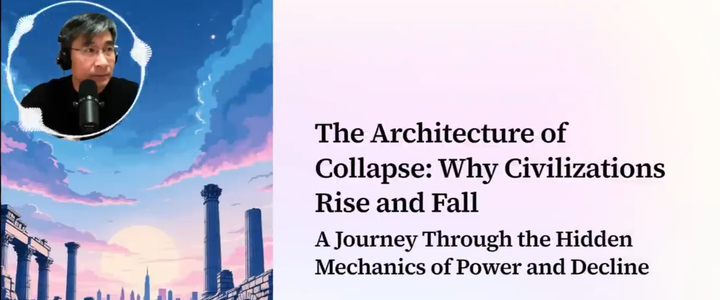
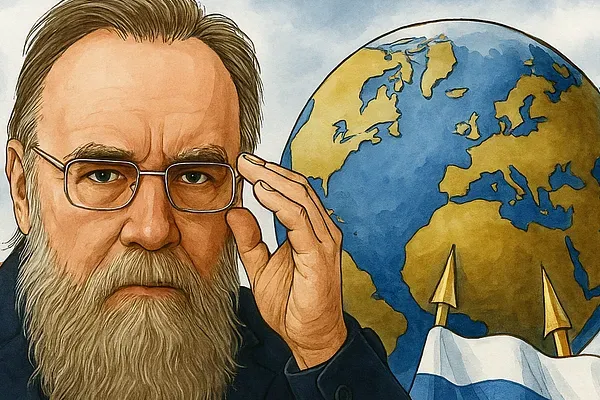
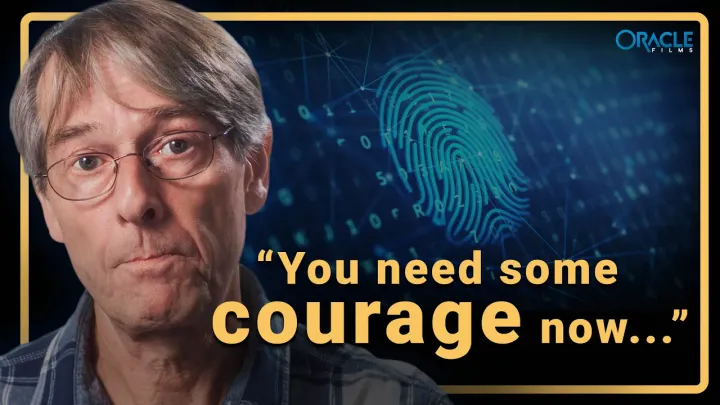
Comments ()